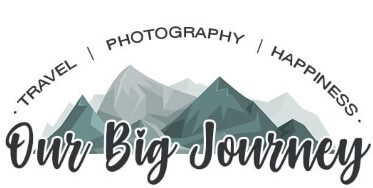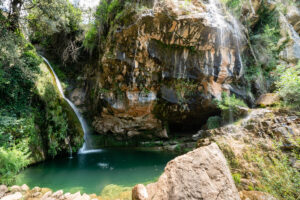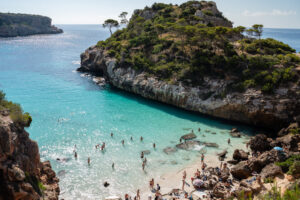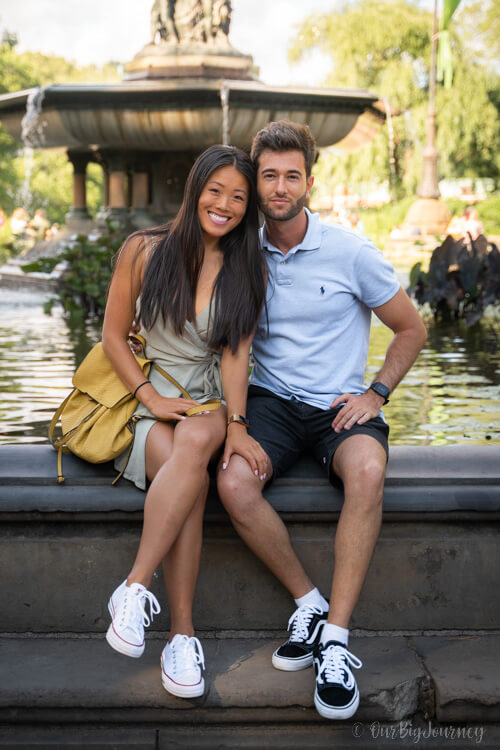Traveling in Albania | What to Know
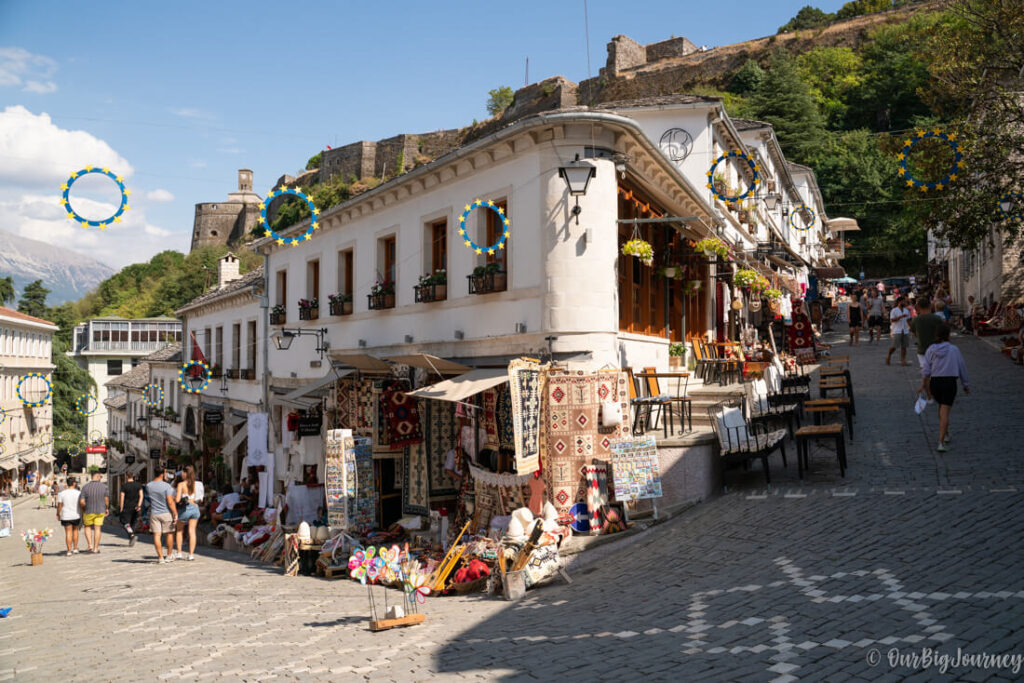
By Roberto (Updated Feb 22)
⏱ 4 min
Traveling to Albania for the first time? Considering visiting the Balkans and learning about its past? Find here basic but helpful information about what to know about tourism in Albania.
We both would have liked to know about some of this info before traveling to Albania. To be honest, I was a bit disappointed when I saw obvious disadvantages of the country there, and nobody mentioned them in other blogs. Note that this is an informational post based on our personal viewpoint, experiences, interests, and values.
Historical background
If you travel to Albania, you’ll see many things that you can only understand by knowing Albania’s historical past. This region of the Balkans was inhabited around 2000 BC by Illyrians. After a long war campaign, the Roman Empire conquered it and Albania remained under its dominance until 476 AD, when the Byzantine Empire began in this region.
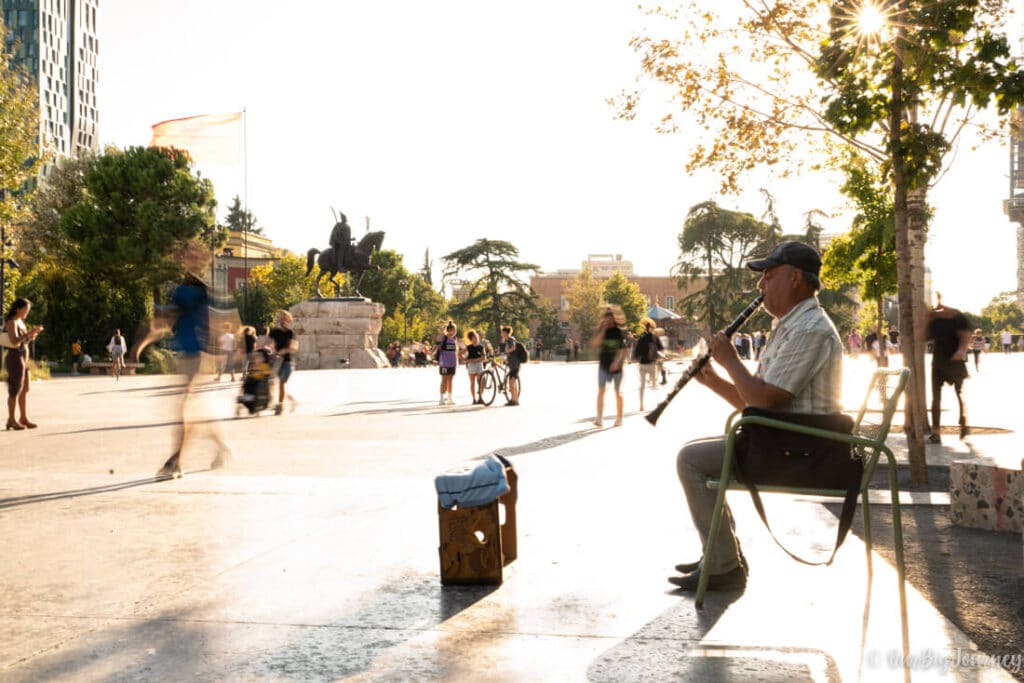
In the following centuries, it was invaded by Huns, Lombards, Slavs, and so on. In 1355 the Serbian Empire established there and some years later, the Ottoman Empire did the same, after a commemorable resistance of 14 years led by Skanderbeg, Albania’s national hero.
Under the dominance of the Ottoman Empire, they fell back in development compared to Western Europe. They finally became independent in 1912 but the country served as a battlefield in WWI and was invaded – again! – by Mussolini’s Italy. The straw that broke the camel’s back was the radical communist regime after WWII, which lasted until 1992, leaving a poor country behind.
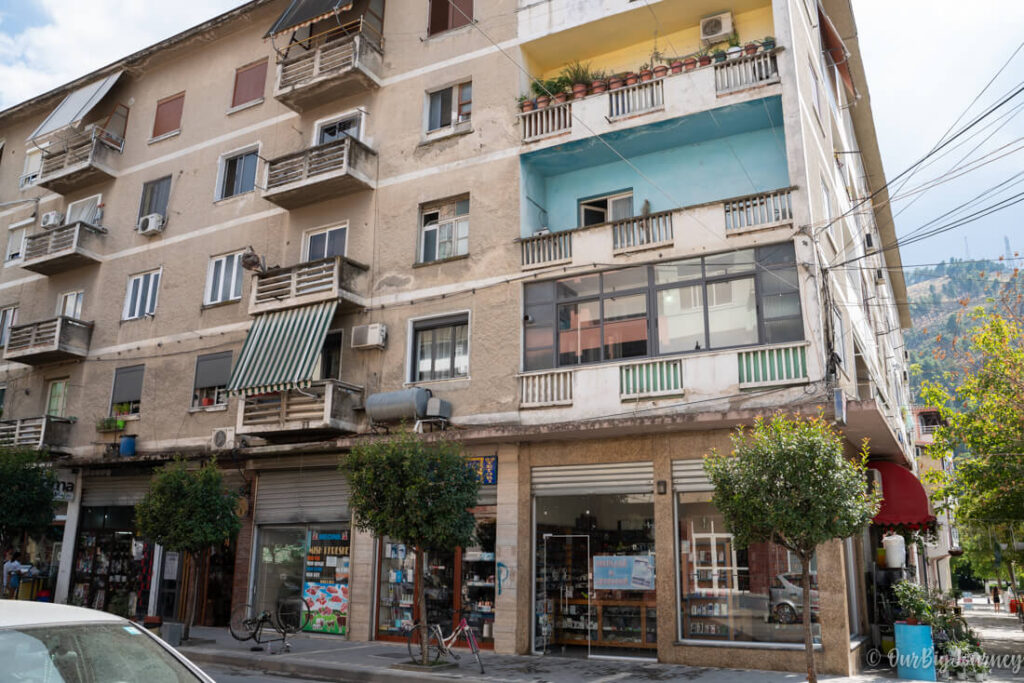
Because of these events, Albania has nowadays:
- Mixed cultures (both Muslims and Christians live together)
- Mixed art and architecture
- A strong national love (after years of invasions they finally want their free land)
- Tons of marginal communist buildings
- Really bad infrastructures
- Lack of years of social and industrial progression
Old-fashion lifestyle
While I was walking with Ellen through the streets I was able to see how everybody was staring at her in some places and that made me feel uncomfortable. Some may agree with this, others don’t, but some social behaviors drew my attention, and they have – in my view – an old patriarchal society.
For example, 75% of local people in the streets, are men who are chitchatting, walking, or just people watching. Where were the women? Who knows, maybe preparing lunch or doing chores, but definitely not outside. While traveling in Albania, you’ll see that drivers, waiters, managers are generally men.
Time spent covering distances
One important aspect to consider when visiting some areas or traveling in Albania is the time spent covering distances. Either if you drive your car, or take a bus, it takes a long time to get places. Some examples are:
- Sandara to Gjirokaster: 55 km / 1 h 18 min
- Theth to Shköder: 76 km / 2 h 20 min (by bus)
- Tirana to Berat: 98 km / 1 h 45 min
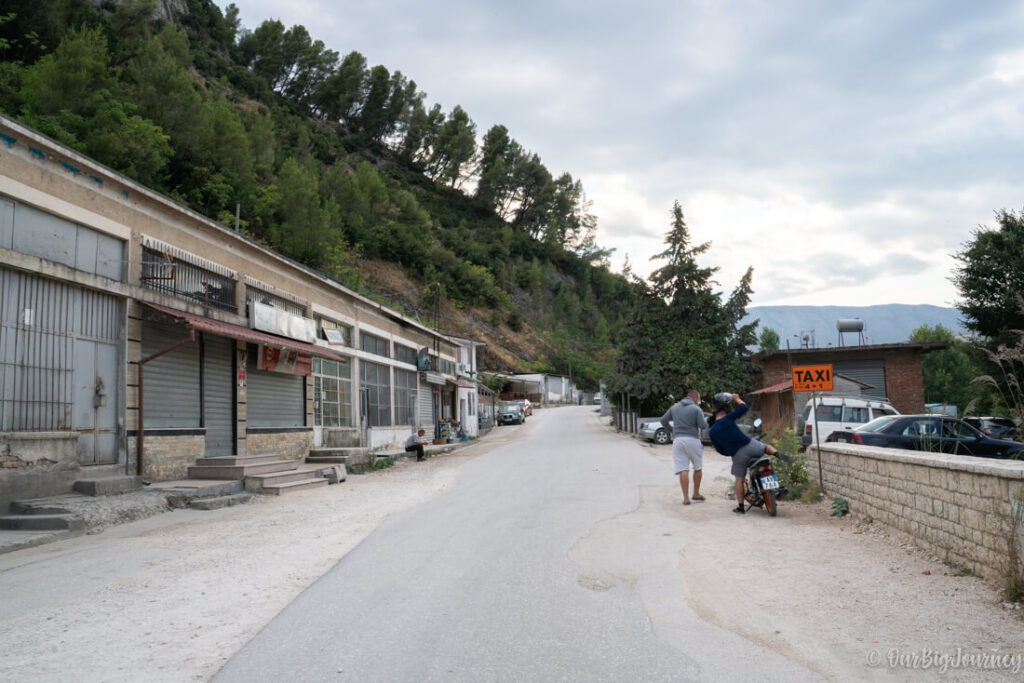
Because of this, think carefully and plan where you’re going in advance. Albania is a relatively small country but the road infrastructure is terrible. The majority of highways are ok, and the roads around the cities are paved or under construction, but in less visited areas or even some streets in towns – like Himare – there are undeveloped and gravel roads.
Speaking in English
Compared to other non-English speaking countries, Albania is more or less an English-friendly country. Same as other countries, like Spain, people generally don’t have a high English level, but it’s easy to travel, rent a car, and find accommodation. In places in the cities, beach bars or other tourist places, people speak decent English and you won’t have any problem. Point for Albania!
Chaotic Traffic
The worst traffic I’ve ever experienced was in Jakarta, where tons of frenzy motorbikes mixed with cars, moved weirdly while polluting the city. I would define the traffic in Albania like… rude. They ALL drive so aggressively.
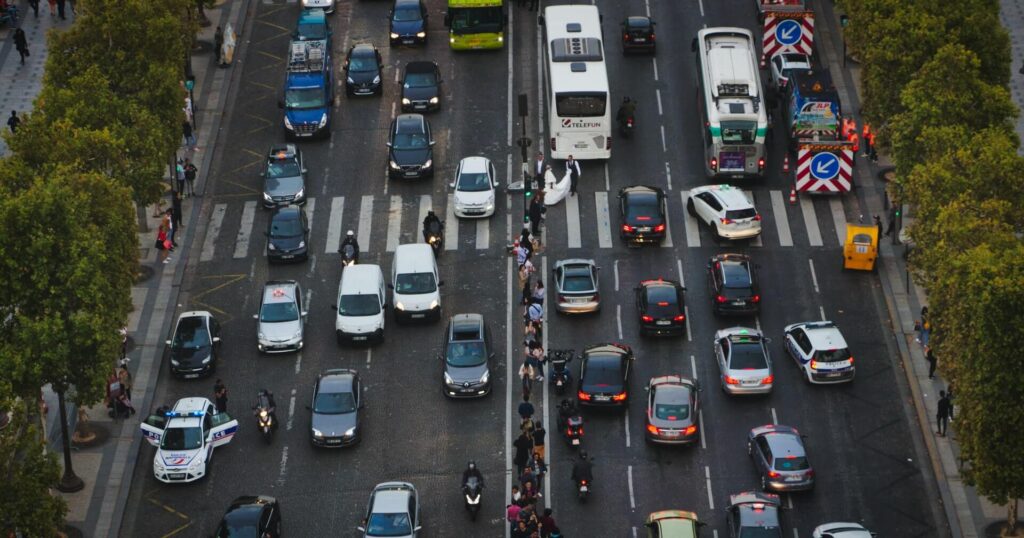
The buses in the city don’t hesitate to invade your lane without a signal, expect bikes in the cities coming from all directions, 3 people in a motorbike – without helmets – or cars suddenly breaking to turn right, at 120 km/h. I’m used to driving a lot – like 15.000 km/year due to my job in sales – and I can tell the traffic there requires more than 100% of your attention.
In case you feel unsafe driving a car, I would suggest avoiding Tirana. The traffic there and around there, was epic. I can still remember the chaos in the roundabouts. Don’t say we didn’t warn you!
Trash… is everywhere in Albania
From the previous things, this one was the one that shocked us the most. Albania has marvelous nature and beautiful landscapes but … they don’t treat them well. It’s common to see tons of cans or plastic bags while driving, in the forest, or at the beaches. Except in our Valbona to Theth hike, we saw trash everywhere. If you don’t care about nature… 😒 ok. But respect at least the image of your country!
About the food
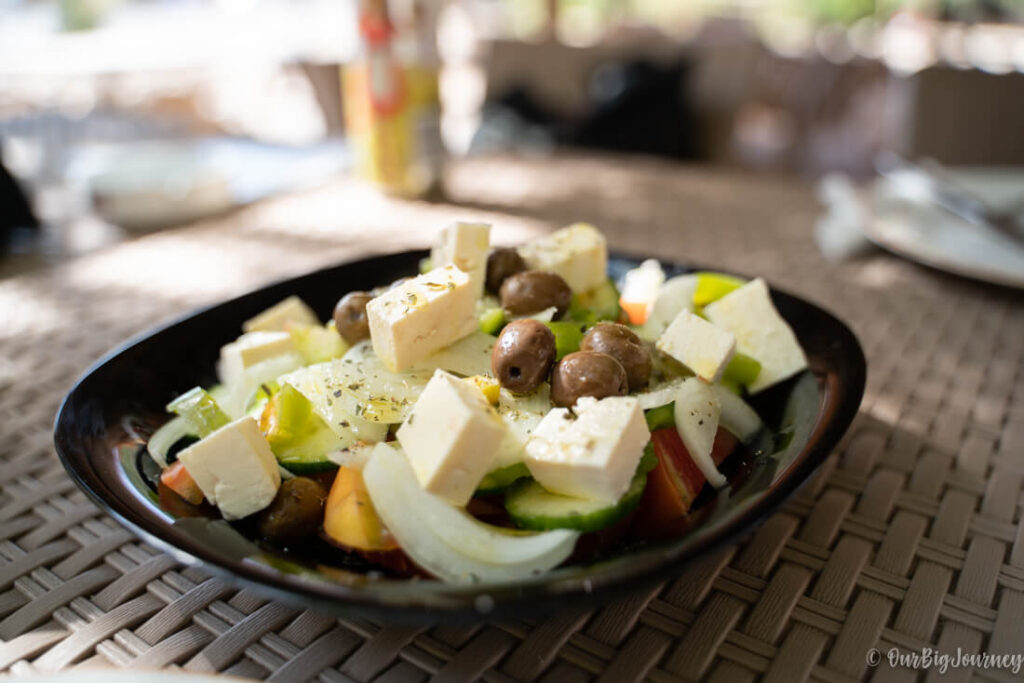
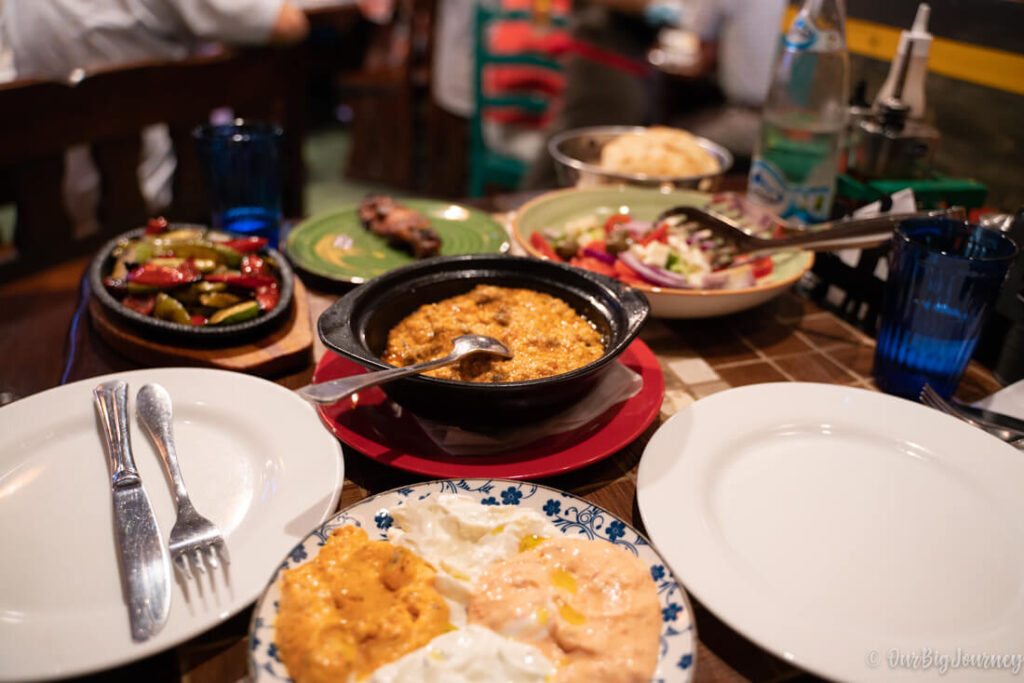
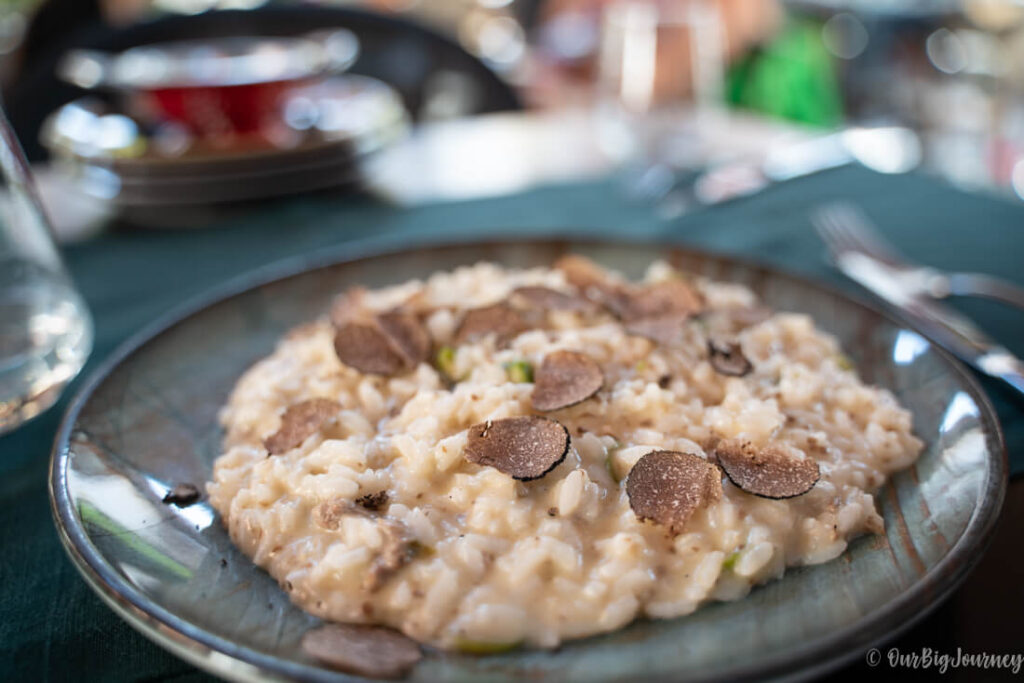
Another positive point for Albania. They don’t have so many options, true, but the food is fresh and they have tons of national plates. They have TONS of feta cheese- loved that – and a mix of Italian-Greek cuisine. Byrek – Albanian pie – is a must-try. Cheese or yogurt options are widespread around the country, like Kackavall ne Furre me Domate – baked cheese with tomatoes – or Tavë Kosi – baked lamb or chicken in yoghurt.
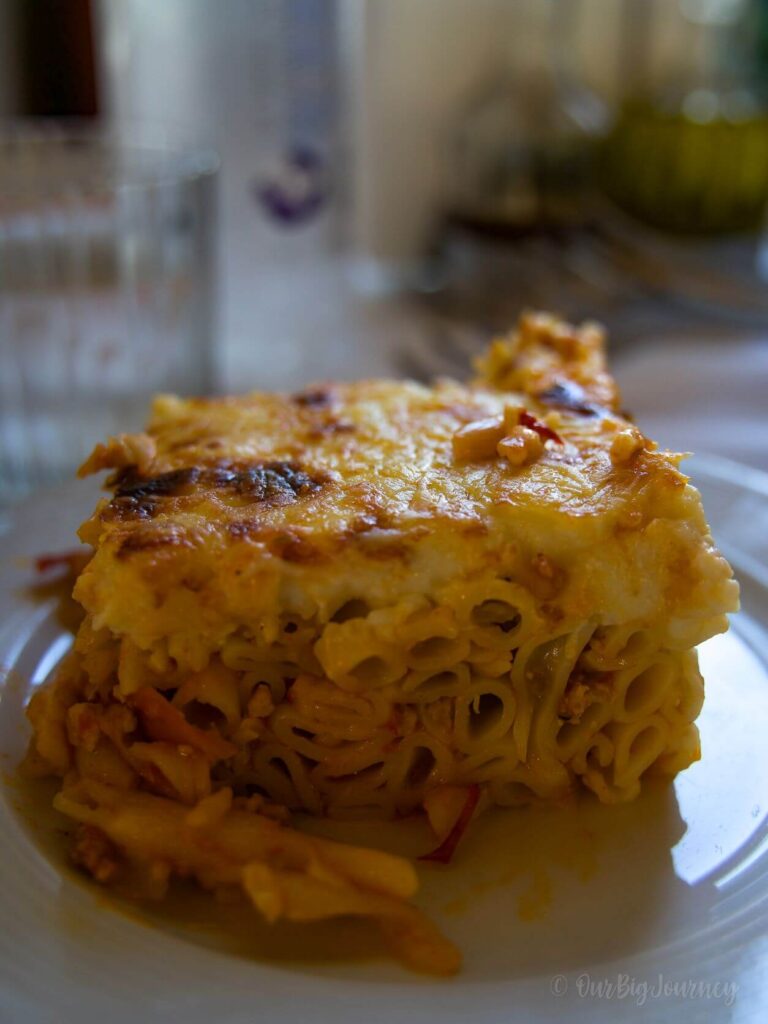
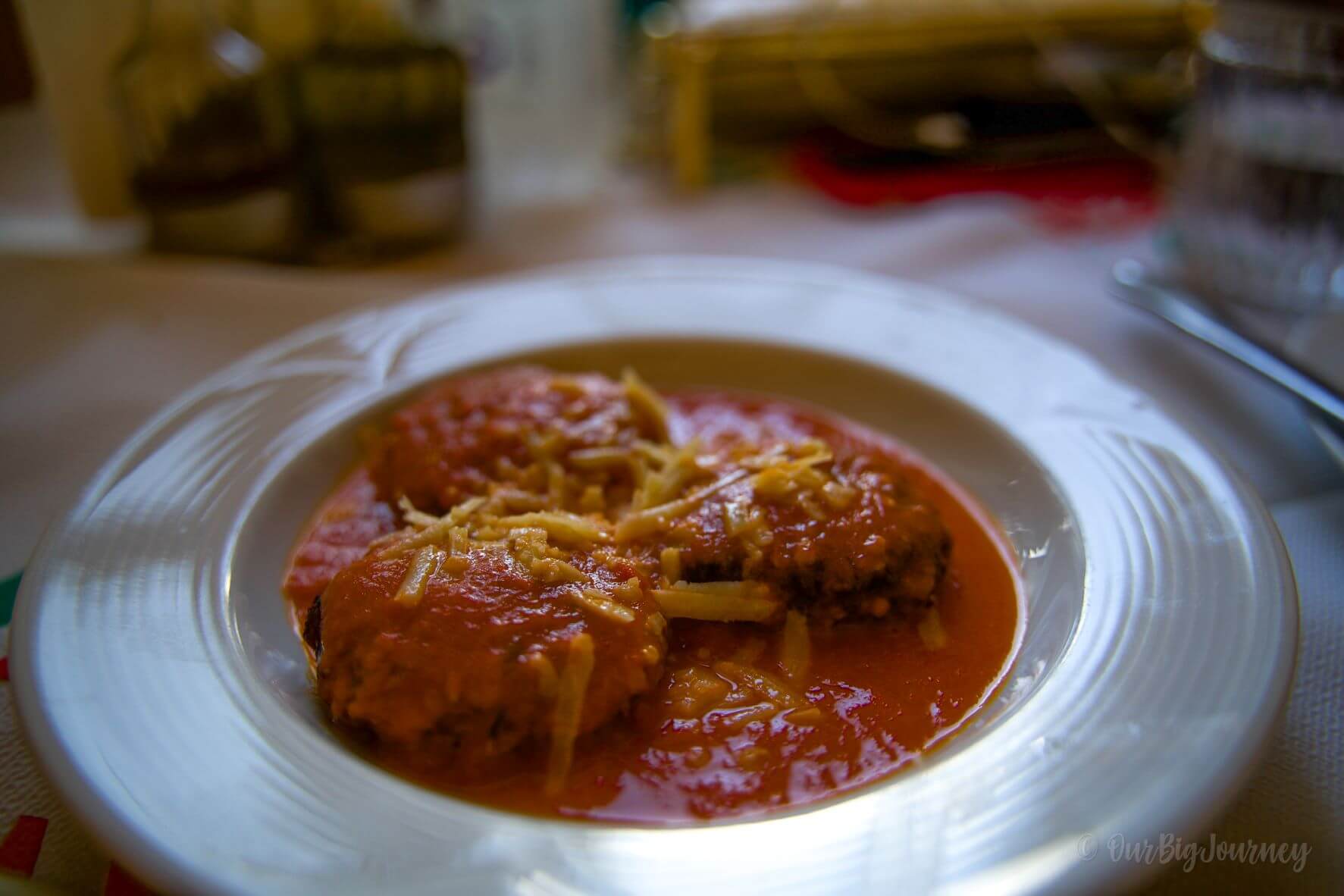
Fish and meat are also common everywhere, with more option for the latter, like meatballs or Tave Mishi – mixed meat platter. Not to mention that they have Raki, a potent distillate drink that they use as a digestive drink. After ten days in Albania, we started to get a bit tired of the options, but nobody can say the food is bad, and the cheese is – yes, again – sooo good!
Scenic nature in Albania
A good reason to explore and travel in Albania is the nature, and this is what really attracted us to this destination. There are epic paradisiacal beaches, like Grama Bay or the pretty Gjipe Beach in the Albanian Riviera. The waters there are so crystal clear and the landscape reminded us of some of our favorite beaches in the Mediterranean – like Menorca or Favignana.
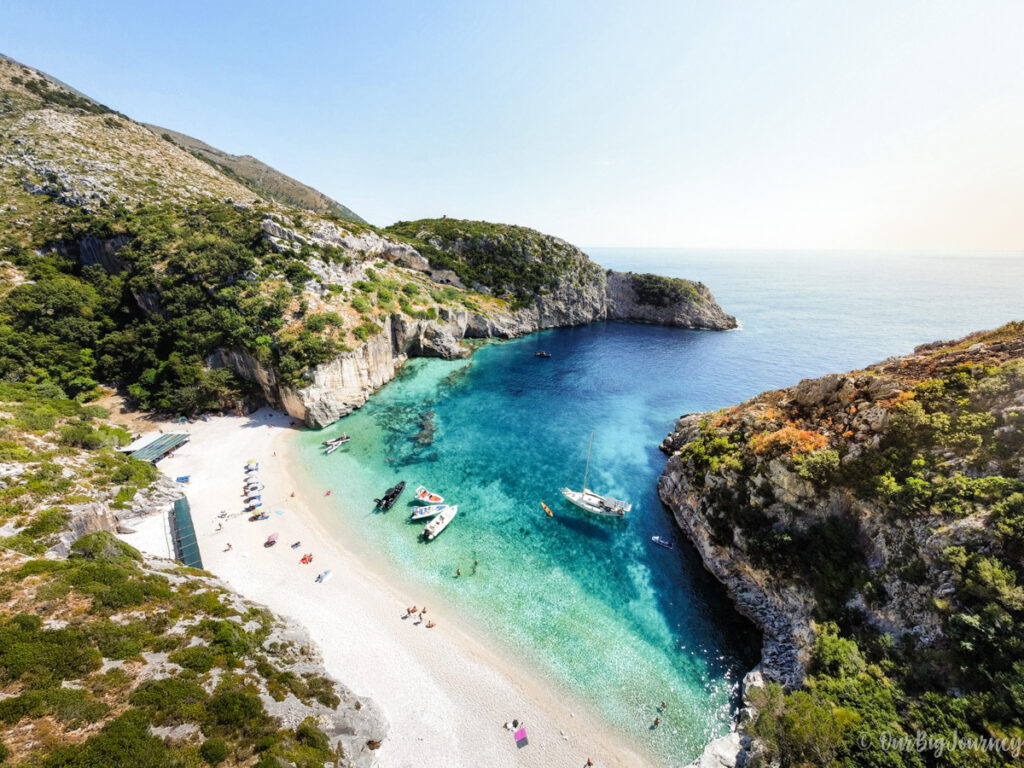
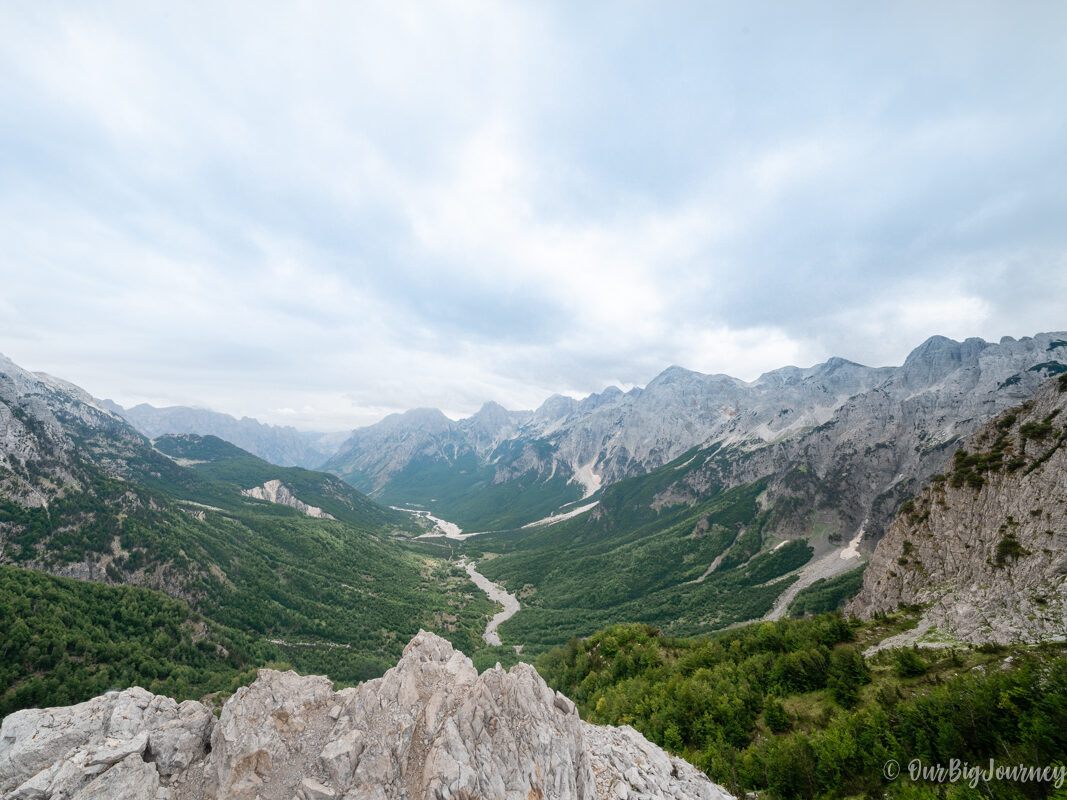
On the other side, they have historical towns with interesting castles like Berat or Gjirokaster and in the North, there are the Albanian Alps or Accursed Mountains. I really loved this northern part, with outstanding views, fresh air, and water. Overall, Albania’s landscape is varied, having a bit of everything. There are good beaches, hidden gems to explore and the Valbona to Theth hike is worth the long commute.
Cheap (?)
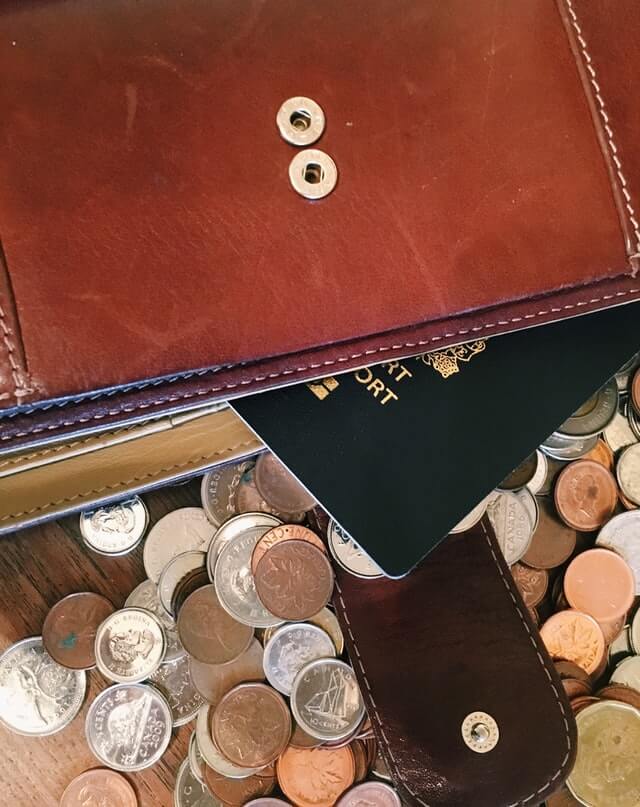
In a bunch of blogs, we saw that Albania was a cheap country, but our impression was a little different. It is, for sure, cheaper than neighboring countries like Croatia or Greece, and much cheaper than other beach destinations worldwide, but don’t expect the prices from Southeast Asia, for example. Along the trip, we tracked all our expenses – something we rarely do – to compare everything.
Compare Albanian Lek with your currency here.
| Item (10 days in Albania) | Euros , € |
| Meals | 348 |
| Snacks / Coffees | 43 |
| Hotels | 471 |
| Car rent | 443 |
| Public transport | 55 |
| Activities (boat, tours, fortress entry fee) | 107 |
At the end of the trip, excluding flights, insurance, and PCRs, we spent a total of 77 €/day each. Which is a bit more than we both expected with many blogs touting about how “insanely cheap” it is.
Tourism in Albania, our conclusion
Albania is a unique country and it has many things to explore, but it has also many drawbacks. I’m a bit sorry to write this, but Albania is the first – and hopefully last – country that we don’t recommend visiting to all our general readers. If we put all the experiences and feelings we got there, in our case, the negative parts overcome the positive experiences. We liked our trip overall, but it was stressful and in some moments we wished we weren’t there, and that’s not a feeling you should have in your vacations.
We do recommend traveling in Albania to adventurer travelers, like backpackers. Traveling in Albania seems more suited to travelers who are easy-going, don’t have strict timescales to adhere to, and can go with the flow more. This way, being more flexible, you could discover an interesting country in an affordable manner.
